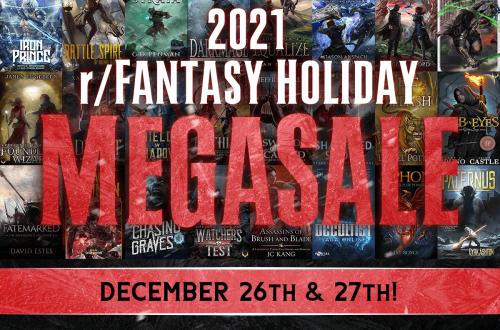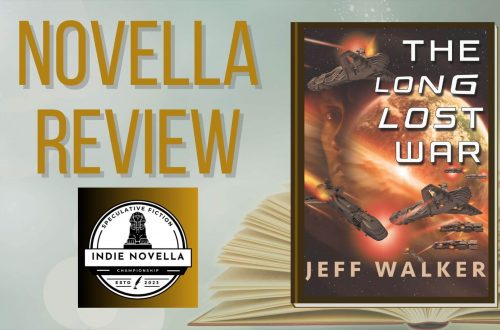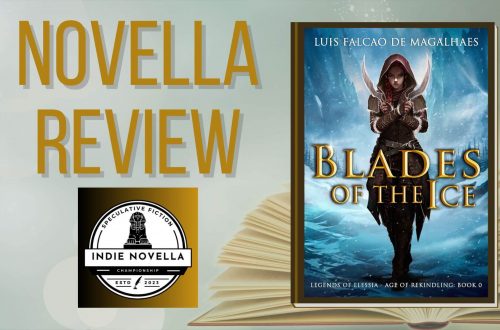Happy National Novel Writing Month day! It’s the first of November and the bells of fate are ringing for writers everywhere. If you’ve spent October prepping for NaNo, then you’ll either be full of excitement or complete dread at the thought of writing 50,000 words this month.
But don’t fear! You and I are going to survive NaNoWriMo together.
I’ve “won” NaNo twice now and wrote three whole novels, but I still struggle when it comes to starting something new. Writing a book is a bit like giving birth; lots of stress and pain, but it’s worth it to create something new and after a while you decide to do it all again! Unlike pregnancy, the hardest part is getting started. Terrible analogies aside, these are my survival tips on how you can win NaNoWriMo and get to the end of November with your own baby book.
Starting Chapter One
As mentioned above, starting is the hardest part. Once you get that ball rolling, you’ll find it much easier to keep on writing and hit those daily streaks. Chances are you might be struggling to think of how to start, especially if you haven’t got an outline. If you’re completely new to writing a book and couldn’t handle doing all of that NaNo prep, then check out this quick and dirty outline by Sebastian Hetman for a quick method for starting.
There’s a lot of conflicting advice when it comes to starting a story. Do you begin in the heat of the action? Or do you begin with the character’s normal life before it all goes wrong? Honestly, at this stage it doesn’t matter too much, though the best advice I’ve seen is to start your story as close to the “kick off” event as possible. But if you’re really not sure how to start chapter one, skip it.
That’s right. Skip chapter one and go straight to chapter two with your characters already established and beginning their adventure. That way you can save the stress of chapter one for later or after you’ve finished, and you may even have a better idea for how to start the story by then!
Quantity Over Quality
NaNoWriMo is the only writing event where it’s not the quality of your words that matter, but the quantity. You’re not going to hit that 50,000 word goal by agonizing over every word.
The biggest problem writers face is that we place so much pressure on the first line, the first page, the first chapter, because we’re told how important they are not just for attracting potential readers, but also potential agents and publishers. There is so much expectation riding on the first chapter of a book that you could spend the entire month agonising over it and re-writing it over and over. I guarantee it’ll be the most edited chapter of your book!
But I’m here to tell you it doesn’t matter.
Chances are, you’re writing the first draft of a new story idea for your NaNo. The first draft of any new project isn’t going to be perfect. In fact, the first draft for many authors often requires a lot of work to get perfect. Most authors don’t automatically publish their first draft – it’ll go through a rigorous re-write and editing process before the polished final draft finds itself at the bookstore. No matter how perfect your first draft is, you’ll need to re-write it and edit it. Therefore you have permission to write a terrible first draft. Even a bad one. Because the words on the paper, or screen, aren’t set in stone. They can be re-written and polished and moulded into something special.
So lesson number is don’t worry about your writing quality.
The first draft is you telling the story to yourself. It’s you exploring the story and figuring it out as you journey alongside your characters. Even if you have an outline, it’s okay to deviate from it as you right. It’s okay if you tell more than you show. It’s okay if you story doesn’t really make sense to anyone else except for you. All of that technical and magical stuff, such as showing the emotions or getting the setting perfect or injecting the atmosphere, that can all be added in on a second draft. It can be fixed for later.
Don’t worry about writing the perfect words and just get down the words. No one has to see them but you. They won’t be all you ever write unless you never start writing!
The second less is one you’ll hear a lot during NaNo; don’t edit!
Don’t go back and re-write words. You don’t have the time! Just move on and keep going!
Bank Your Words
To “win” NaNoWriMo you need to write 50,000 words in the entire month of November. That’s about 1666 words a day, which sounds like a lot, especially if you don’t have much time. I spoke in my NaNo prep post about the importance of making time in your day to write, or to find a distraction-free space, but sometimes life just gets in the way and you can’t meet your daily NaNo word count.
So my biggest tip? Bank your words.
What do I mean? Basically, on the days that you have more time, write more words. Don’t just stop at 1666. Push yourself to 2000 or more. That way, when you can’t meet your word count for that day due to work or being too tired to bother (and trust me, we all have those days) you’ll have built up a buffer that’ll help keep you on track.
It doesn’t matter how often you write, so long as you hit that 50,000 goal by November 30th. I personally try to write 2000 words a day as a buffer, but on my weekends and days off I’ll push to double that because I know I may fall short on my working days when I just need a break.
Skimp on the Details
So much writing time is also thinking time; how to write the next scene, what the character’s are up to next, etc. If you’re writing fantasy or sci-fi you’ve got even more things to think about and consider, such as what the setting looks like or how the magic system works, and don’t even get me started on character names!
Thus my next pro-tip is to skimp on the details. Don’t worry about the worldbuilding details of your world, just give us the set pieces. Placeholder names and text are absolutely your best friend if you can’t think of how to progress a scene. Are your characters stuck across a river and you have no idea how they’re going to navigate it? Write in the following:
[They crossed the river]
And poof! It’s done. The character’s are across the river and you can continue with the story, leaving that one detail for future you to come back to in the next draft.
Using placeholder names is great if you don’t have a name for locations or characters. Any name you pick for a character can change, and your Magic City can earn its name the next time.
Of course, future you may hate you for all these placeholders, but future you isn’t trying to write a whole damn book in 30 days.
Back Up Your Words!!!
I cannot stress this enough: BACK UP YOUR WRITING!
Nothing will ruin your NaNoWriMo experience as much as losing your writing whether because you forgot to save a chapter, or because your computer decided it had enough. If you are deep into a long writing session, please remember to save regularly, or use a writing program that has an auto-save feature. Google Docs is a free online word processor with auto-save, but there are others.
Also back up your files at least once a week. Set aside time just for this task. If you have a USB drive or external hard drive, make a copy of your files to these. If not, you can upload to Google Drive or Microsoft’s OneDrive which offer free online storage for your files, and don’t worry, you won’t lose any copyright to your work by uploading to these places.
One other method is to email a copy of your document to yourself. Word documents are fairly small, so they shouldn’t take up much space. Just make sure you back them up and thank me later.
How to De-Stress
Writing a book is stressful at the best of times, but trying to do it in a single month is certainly a challenge. They’ll be times you’ll need a break if only for your brain to get some rest. And times when you’re hit writer’s block and feel like throwing your entire monitor out the window. Whilst that would be therapeutic, I don’t recommend it. What I DO recommend is doing indulging in another hobby or going for a walk.
Going for a walk really is the best cure for writer’s block as just being on the move can stimulate your thinking muscles. Washing the dishes produces the same effect, but isn’t as much fun. Other writers swear by showers and baths, but find some way of unwinding away from the screen.
There’s this stereotype of writers needing coffee to live, and whilst it’s certainly true for some of us, it’s not healthy to skimp on your sleep and survive on caffeine. Sleep is the most important thing for your brain so please make sure you get enough of it. Don’t be tempted to stay up past your bedtime just to get the words in. Brains don’t work so well on little sleep, and there’s a lot of research out there proving that a lack of sleep can impair cognitive function. And if your brain is running on fumes, you’ll have an even harder time wading through writer’s block and getting those words down.
Sleep first. Write later.
Join A Community
One of my favourite things about NaNoWriMo is the sense of community when the collective souls of writers go on this journey together and share their joys, successes, and woes. There’s nothing quite like the comradery of writing alongside other people. Before the pandemic, I would have recommended finding a local writing group and arranging write-ins where you could get together and support one another whilst writing, but now it’ll be safer for you to find groups online.
The NaNoWriMo’s own community is a fantastic group. There’s the main message board, individual groups based on interests and location, and also the social media accounts running frequent discussions and writing sprints so you’ll never feel alone.
If these groups aren’t for you, there are many other writing groups out there including Reddit pages and Discord chat servers.
I’d recommend joining a community not only to meet like minded people, but also to seek help and support for when those cold, dark, NaNo-nights take their toll.
Do Your Best
Ultimately, NaNoWriMo is one way of way of writing a book, but its pace isn’t suited for everyone. There are many other ways to write a book, and you’re not a failure if you can’t stick to a NaNo schedule or don’t meet the target. Even if you start and don’t finish, you’ve still gave it a go, and you can always use NaNo to develop ideas and come back to them later.
The most important thing is to have fun. If NaNoWriMo is causing you more stress than fun, then it’s okay to quit. It’s okay to write at a slowly pace. There are plenty of published authors out there that take years to write their book, and that’s okay.
Are you taking part in NaNoWriMo this year? Let me know what you’re working on and what your pro NaNo tips are!




